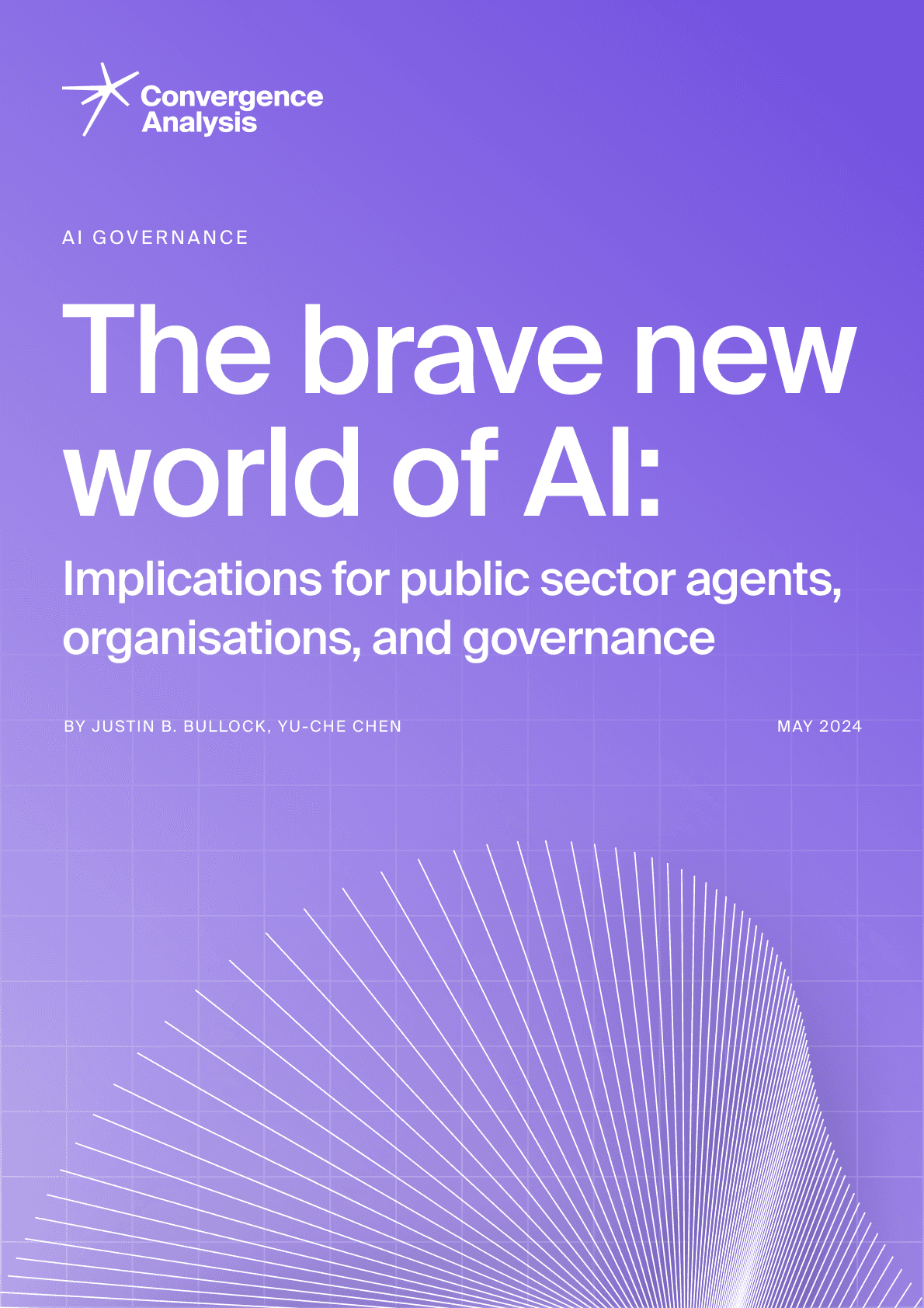AI Governance
The brave new world of AI
Implications for public sector agents, organisations, and governance
By
Justin Bullock
, Yu-Che Chen
May 27, 2024
Originally Published
May 27, 2024
Research program
Citation
Justin B. Bullock & Yu-Che Chen (2024) The brave new world of AI: implications for public sector agents, organisations, and governance, Asia Pacific Journal of Public Administration, 46:4, 321-325, DOI: 10.1080/23276665.2024.2356540
Over the past 10 years, public administration scholarship has begun to wrestle with the increasing capabilities of artificial intelligence (AI). This can be seen in the increasing attention paid to the various opportunities and issues presented by AI to public administration. These topics have included observing changes in discretion, management, organisational design, and process frameworks (J. Bullock et al., 2020; Busch & Henriksen, 2018; Peeters, 2023; Zuiderwijk et al., 2021). Public organisations have evolved from street-level to screen-level organisations (Bovens & Zouridis, 2002) and many organisations have evolved further to be dominated by digital systems that shape the behaviours throughout these organisations.
Studies have found that AI can improve efficiency, effectiveness, and equity in some domains, while many studies have found the opposite effects in other domains (Compton et al., 2023). These systems can be poorly implemented, designed, and executed, sometimes reducing and sometimes increasing the prevalence of administrative evil (Young et al., 2019). We should no longer see the implementation of these systems as either a panacea to be universally embraced or a plague to be avoided.
Very little of the existing work, however, is forward looking. That is, the field of AI is experiencing a breadth of investment, policy attention, and increases in capabilities on a scale that arguably surpasses that of the introduction of computers and the internet. It is important that we carefully analyse how to best govern this technology (Taeihagh, 2021). One of the most important questions is what will public administration, public organisations, and public management need to do to prepare and shape the fast pace of these increasing AI capabilities (J. B. Bullock et al., 2022)? The new paradigm of machine learning has already shown incredible progress in generating language, images, audio, and video. In addition, experts generally agree that progress with the current methods appears to be scaling with large amounts of data and computational power and that improvement in the learning algorithms themselves are likely to continue (Kaplan et al., 2020). These systems are already being applied to solve long-standing problems in other fields.
This suggests that public service organisations are in the midst of another fundamental transition shaped by technological changes. And this transition requires creative, forward-looking thinking across three core areas within public administration: 1) agents, 2) organisations, and (3) governance. We briefly highlight outstanding questions that AI development presents to each of these core areas of PA research and practice.
Get research updates from Convergence
Leave us your contact info and we’ll share our latest research, partnerships, and projects as they're released.
You may opt out at any time. View our Privacy Policy.


